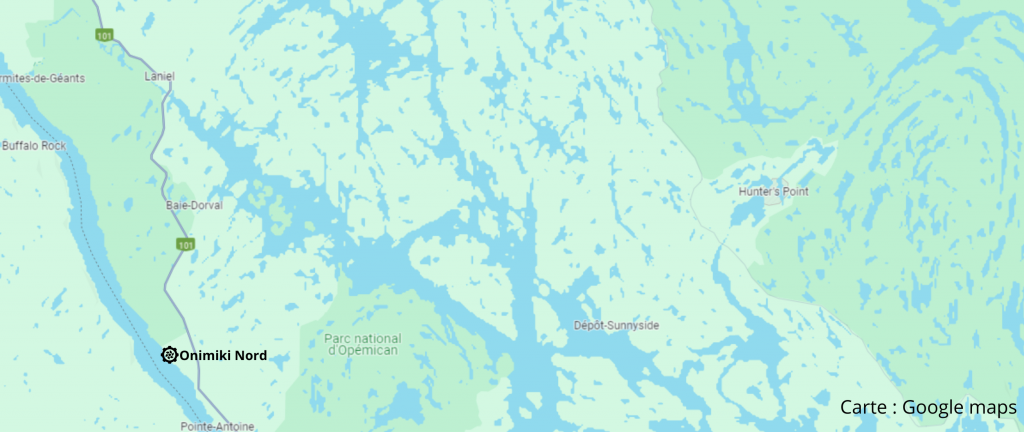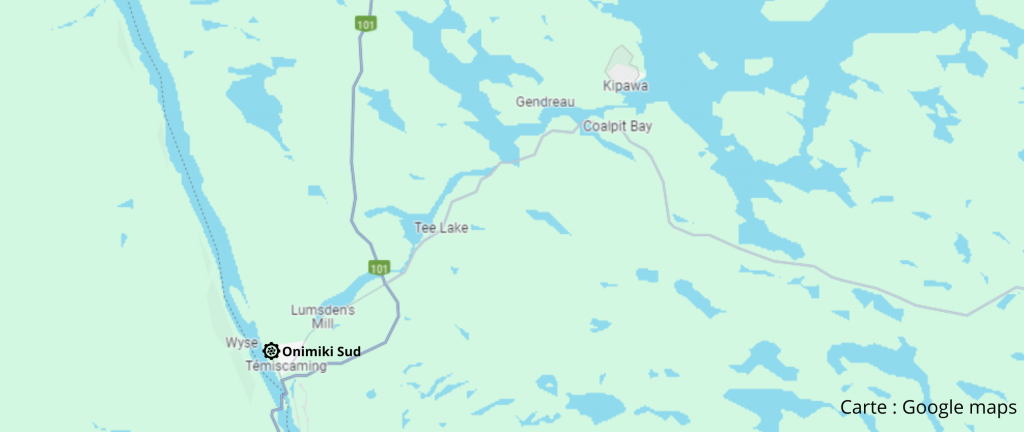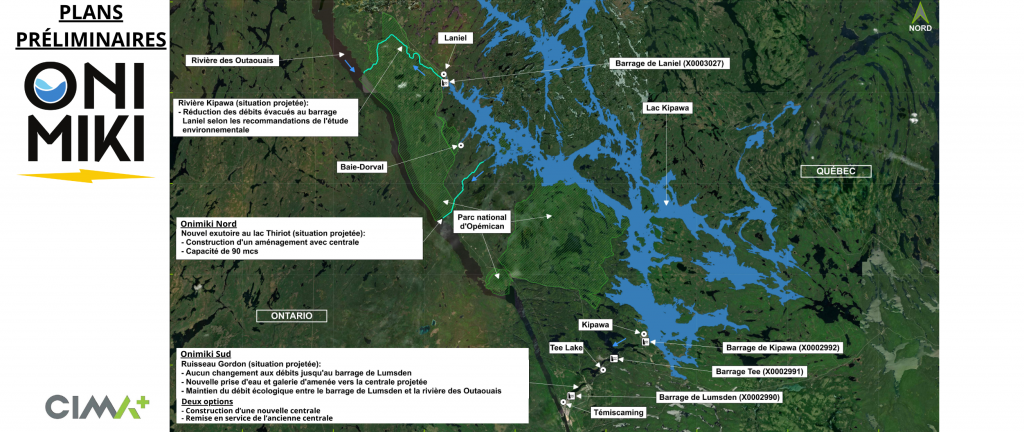Onimiki Renewable Energy project consists of the development of two hydroelectric power plants using the hydraulic forces of the Kipawa reservoir.
Onimiki North power plant with a capacity of 60 MW would be located on the edge of the Timiskaming Lake (approximately 30 kilometers north of Témiscaming and 15 kilometers southwest of Laniel).
Onimiki South power plant with a capacity of 10 megawatts would be located in the city of Témiscaming on the edge of the Ottawa River.
An upgraded project
Developing hydroelectric power plants using the hydraulic forces of the Kipawa reservoir has been considered for several years.
Certain issues and concerns were raised during consultations held in fall 2022.
Onimiki Renewable Energy revised its project. The upgraded version makes it possible to respond to several points that had been expressed.
A project in development
Onimiki Renewed Energy project is still under development. The final project will be proposed after detailed engineering studies, environmental studies and the information and consultation process.
Onimiki North
Onimiki North power plant would have three turbine-generator groups capable of producing up to 60 MW.
Short sections of canals would be built to connect the Kipawa reservoir to Thiriot and Nadeau lakes as well as a small closure dam downstream of Nadeau lake.
Supply structures 2.8 kilometers long would be built to supply the power station
Highlights
- No changes required at the Kipawa and Tee Lake dams
- No change at Lumsden dam
- Maintain current conditions between Kipawa dam and Lumsden dam
- Minimal visual impact (entrance channel in a tunnel)
- Virtually constant production all year round and guaranteed in winter
- Ecological flow in Gordon Creek

Onimiki South
Onimiki South power plant would have two turbine-alternator groups.
The new water intake would have its source on the right bank of the Lumsden dam. A 1.6 kilometer intake gallery would be built.
Currently, two options are being analyzed for the building housing the power plant.
- Construction of a new power station located north of the old power station;
- Use of the building of the former Témiscaming power station.
Highlights
- Management of the Kipawa reservoir in accordance with historical conditions
- No significant flooding along Thiriot and Nadeau Lakes
- Ecological and aesthetic flow maintained in the Kipawa River (determined during environmental study)
- Possible improvement in the predictability of whitewater activities in the Kipawa River
- Guaranteed production in winter

Onimiki overview  LARGER VERSION, CLICK HERE
LARGER VERSION, CLICK HERE
The following map illustrates the project as presented in 2022. Several changes were made following comments received.
- Maintaining the same flow rate on lakes du Moulin, Tee, Jadot, aux Brochets and Gordon stream.
-
Elimination of the Onimiki 2 plant
- Reduction in the power of Onimiki 1 which becomes Onimiki Sud (from 37 MW to 10 MW)
